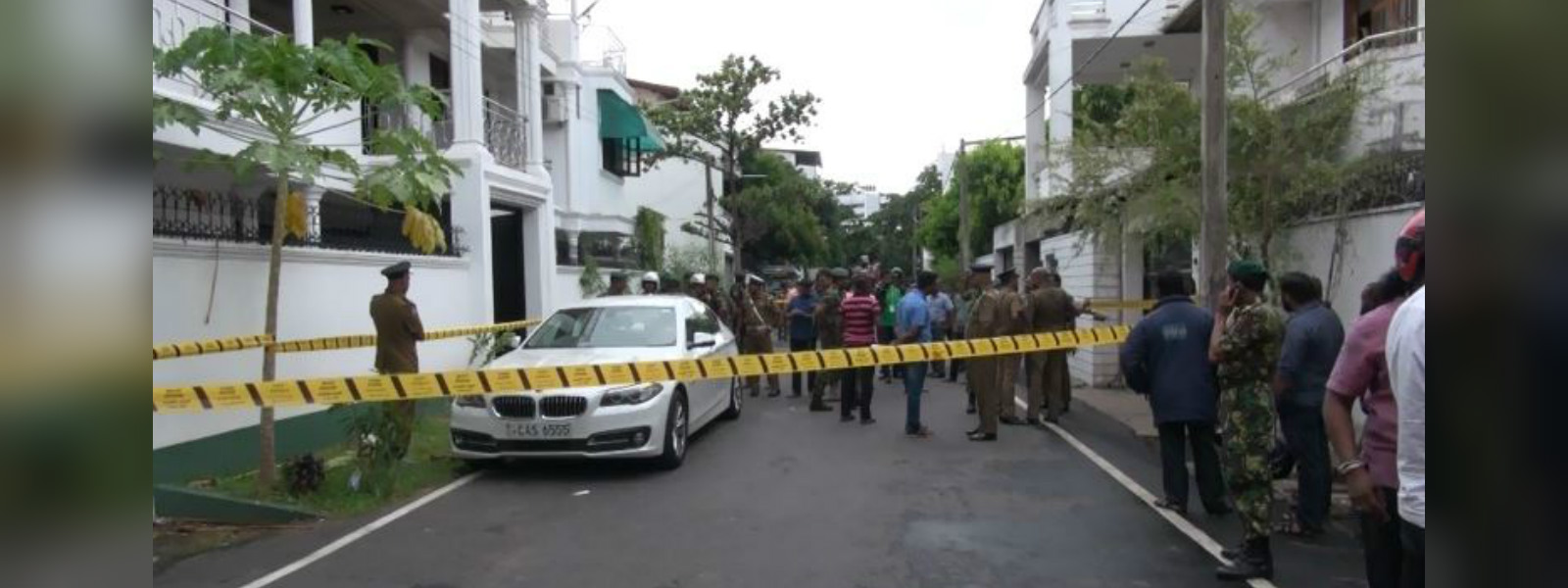.webp)

10 YEARS OF DISCIPLINED DEMOCRACY IS WHAT SRI LANKA NEEDS.
Black Easter has become international news thanks in great part to the claim by Daesh (IS) that it was responsible. The attack which reached new heights in terms of the horror and barbaric nature of the attack in which over 45 children lost their lives, is set to change the political landscape in Sri Lanka. In fact, that change is very much underway.
The monstrous attack on a liberal, peace-loving and laid back population has spurred dramatically open public debate on the vexed and contentious issue of political leadership in the Indian Ocean Island.
In the aftermath of the attack targeting catholic churches and luxury hotels along with a string of subsequent other explosions, the political establishment rushed to begin the latest ‘blame game’ with a shocking disregard for the dead, wounded and psychologically scarred population.
That the government of Sri Lanka’s Defense Secretary received intelligence from its Super power neighbor, India, is now not disputed. Sri Lanka’s beleaguered Prime Minister, known for his stony reactions in the face of adversity and in good times, acknowledged that advance intelligence had been received.
The Prime Minister of Sri Lanka serving his fifth term of office – none of which he has completed to its full term – appears muddle-headed in his explanation as to why the authorities failed to initiate action having received intelligence on specific targets.
Initially Cardinal Malcom Ranjith maintained that the Prime Minister acknowledged the intelligence report and had added that the portfolio of Law and Order was not within his purview. In later interviews especially with several foreign media organizations including Britain’s state broadcaster the BBC, Sky News and Channel 4 News the Prime Minister was steadfast in his claim that he was not aware of the intelligence note from the Ministry of Defence. The fact that the note carried the highest security classification “Eyes Only” and that the fundamental premise of being the Prime Minister – the security of the people – appears to have flown over the Prime Minister’s head.
Some of the intelligence related material never happened. The Taj Samudra Hotel and the Indian High Commission named as targets were somehow spared. Significantly the Cardinal maintained equally steadfast, that the Churches were never given prior warning. Indeed had they been given such notice the Cardinal said they would have taken counter measures themselves.
Cardinal Malcolm Ranjith and others from ecclesiastical organizations have taken a lead role in maintaining the fragmented anger, frustration and fear now instilled in much of Sri Lanka’s population.
There is a grave danger though that the ecclesiastical seniors will presume the mantle of public administration at the expense of alienating the political administrators. The government have been (largely) elected to serve the people and inherent among those expectations is the safety of the people. Government policy ought to be one message to terrorists of all hues that Sri Lanka will not cow down in fear and that Sri Lanka fully intends moving forward whilst ensuring that terrorists are not given any form of traction. If the government announces the re-start date of schools and some parents are wary of sending their children then those kids could always be kept at home. The point we labour is clear: government must make the policy and everyone must follow. Those in disagreement for whatever reason can join when they feel safe enough to do so. It is not for any ecclesiastical union to impose their own version of how best to address the ‘way forward’.
Increasingly becoming obvious as the events roll out and with discovery upon discovery of weapons and implements related to the making of various terror-related product like bombs, is a real need for disciplined democracy. A leader of the nation who will have security concerns foremost in thought as all good can only flow from the creation of a safe and stable environment for all.
The single-minded purpose of mind displayed by the war-time Defence Secretary Gothabya Rajapaksa during the war ears and subsequent to the end of hostilities in May 2009 is now shining almost like a lighthouse.
In adversity people look back to the past when times were better. It is undeniable that during the Rajapaksa years security was given a very high priority indeed.
Since 2015 and a government largely leaning to the west, the forward outlook towards intelligence and security seemingly virtually died an almost natural death. Indeed the government appeared to have focused on large scale infra structure development projects – the claims of corruption and political patronage are hard to miss. The defence of the republic meanwhile took an almost natural back seat.
There is a school of thought that Gothabya Rajapaksa may well be the only choice for President. Many would agree that his passion for discipline and sharp-as-a-blade no-nonsense speak will augur well for Sri Lanka with the showcasing of the lax law enforcement and intelligence gathering being highlighted thanks to the search for extremist elements around the island.
For many Sri Lankans, the flip side of a disciplinarian like Gothabya Rajapaksa assuming the Presidency is a necessity needing little debate.
Many say that in any event with a maximum of ten years in high office, even if some excesses re-emerged, the overall objective of turning Sri Lanka into a well-disciplined society must be the priority.
It may well be a decision that the same people may tire of in ten years and perhaps regret. Currently however Sri Lanka is reeling and anyone promising a return to ‘normalcy’ will probably emerge victorious. The people would be willing to back the notion that ten years of a disciplined democracy is far better than the current apathy towards the law and law enforcement. After all if regret sets in, in the next ten years, the people can always exercise their franchise in yet another direction.
Other Articles
Featured News





.png )
-819380_550x300.jpg)


-812087_550x300.jpg)
-810262_550x300.jpg)
-809496_550x300.jpg)




















.gif)